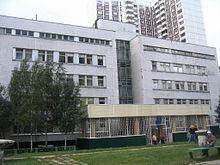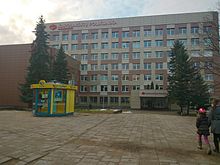

Avoid touching or massaging the treated areas for at least 24 hours to prevent the product from spreading to unintended muscles. Learn more about Botox and Filler New Westminster here. It's clear that more individuals are seeking ways to enhance their appearance without going under the knife, aiming for results that bring out their best features while maintaining a natural look. You'll find the discomfort minimal, with most clients describing it as a quick, mild pinch. They're always available to answer your questions and address any concerns you may have, making your experience as comfortable and satisfying as possible. This consultation isn't just about assessing your skin's current condition. Learn more about Chin filler New Westminster here
You'll notice the improvements are real yet natural-looking. It's especially effective for frown lines, crow's feet, and forehead lines. Fillers, unlike Botox, focus on restoring lost volume and smoothing out deep-set lines rather than merely relaxing muscles. You, too, could see such changes. Type F botulinum toxin
You're in hands that not only aim to achieve the aesthetic results you desire but also prioritize your health throughout the process. After receiving your Botox or filler treatment, it's crucial to follow specific aftercare instructions to ensure optimal results and minimize any potential side effects. You'll typically see results within a few days, and they can last up to four months. Our team is here to listen to your concerns, assess your skin, and recommend the best treatments tailored to your needs.
Following this initial conversation, we conduct a thorough assessment of your facial structure and skin condition. He turned to dermal fillers for his hollow cheeks, a condition that made him look older than his years.
If turning back the hands of time were as easy as turning back the pages of a calendar, we'd all be flaunting our teenage skin. On the other hand, filler outcomes can be a bit more enduring. Choosing Manhas Health Co. means you're selecting a partner who places your well-being at the forefront of their practice. You might experience temporary bruising, swelling, or redness at the injection sites. It's natural to wonder about the safety, pain involved, and the longevity of results.
When you step into their clinic, you're not just another client; you're an individual with unique facial features, skin concerns, and aesthetic goals. Your journey with us is a partnership, and it starts with this personalized consultation. They can plump up thin lips, soften facial creases, remove under-eye shadows, and redefine the jawline, giving you a more youthful and refreshed appearance without the need for surgery. You don't have to worry about fitting this appointment into your busy schedule; Manhas Health Co. offers flexible booking options to accommodate your lifestyle.
They'll carefully select the right filler to complement your natural features, ensuring results that look and feel authentic. You'll find that each member of our team isn't just highly skilled in their craft; they're passionate about making you feel and look your best. AbobotulinumtoxinA Nestled in the heart of Chin filler New Westminster, Manhas Health Co. offers easy access to its top-tier botox and filler services. If you're anxious about the discomfort, most clients report only a slight pinch during the process. Read more about Chin filler New Westminster here
We regularly send out updates on the latest deals, ensuring you never miss an opportunity to save. You're not changing who you are; you're accentuating what makes you naturally attractive. At Manhas Health Co., it's not just about the treatment-it's about the trusted relationship you build with our team. The clinic's location isn't just about practicality; it's also about the experience.
New Westminster (colloquially known as New West) is a city in the Lower Mainland region of British Columbia, Canada, and a member municipality of the Metro Vancouver Regional District. It was founded by Major-General Richard Moody as the capital of the Colony of British Columbia in 1858 and continued in that role until the Mainland and Island colonies were merged in 1866. It was the British Columbia Mainland's largest city from that year until it was passed in population by Vancouver during the first decade of the 20th century.
Before you embark on your rejuvenation journey at Manhas Health Co., the personalized consultation process ensures your treatment aligns perfectly with your aesthetic goals. It's important to choose a skilled practitioner who understands the art of facial aesthetics. With Manhas Health Co, you're not just getting a filler treatment; you're embracing an artful approach to beauty enhancement. As you navigate through the bustling streets of life, your skin bears the brunt of time and elements, but it doesn't have to tell the same old story.
Each testimonial isn't just a story; it's a shared experience of transformation, satisfaction, and renewed self-esteem, all thanks to Manhas Health Co.'s commitment to excellence in Botox and filler services. From the moment you walk in, you'll feel the difference. Regular touch-ups will maintain your desired look.
You're welcome to call their friendly staff, who'll happily assist you in setting up your appointment. At the heart of every procedure, your safety and comfort are our paramount concerns.


Ensure you're well-hydrated and have eaten a light meal before coming in.
Steer clear of strenuous exercise for 24 to 48 hours to ensure the product settles correctly. Whether it's defining your cheekbones, softening nasolabial folds, or giving your lips that perfect pout, the experts at Manhas Health Co. know exactly how to achieve the look you desire. Botox treatments, when administered by our skilled practitioners, can significantly reduce the appearance of fine lines and wrinkles, offering you a more youthful look. We follow up to ensure you're delighted with the results and make any adjustments if needed. They truly understand what I needed.'Mark shares a similar sentiment, 'I was hesitant about getting fillers, but the team made me feel at ease.
Moreover, we're equipped with state-of-the-art technology to guide our procedures, ensuring that each injection is placed with precision for optimal results.


They take the time to listen to your concerns, answer your questions, and walk you through each step of the process. Prabotulinumtoxin A Avoid rubbing the treated areas for the first day, and stay upright for a few hours post-treatment to ensure the Botox stays put. Opt for mild, non-irritating products that don't contain retinol or other harsh ingredients, as your skin might be more sensitive after the procedure.
Additionally, keep your skincare routine gentle. If you've got questions or need further assistance, don't hesitate to call our clinic. Choosing Manhas Health Co.

Cosmetic may refer to:

A clinic (or outpatient clinic or ambulatory care clinic) is a health facility that is primarily focused on the care of outpatients. Clinics can be privately operated or publicly managed and funded. They typically cover the primary care needs of populations in local communities, in contrast to larger hospitals which offer more specialized treatments and admit inpatients for overnight stays.
Most commonly, the English word clinic refers to a general practice, run by one or more general practitioners offering small therapeutic treatments, but it can also mean a specialist clinic. Some clinics retain the name "clinic" even while growing into institutions as large as major hospitals or becoming associated with a hospital or medical school.

The word clinic derives from Ancient Greek κλίνειν klinein meaning to slope, lean or recline. Hence κλίνη klinē is a couch or bed and κλινικός klinikos is a physician who visits his patients in their beds.[1] In Latin, this became clīnicus.[2][3]
An early use of the word clinic was "one who receives baptism on a sick bed".[4]

Clinics are often associated with a general medical practice run by one or several general practitioners. Other types of clinics are run by the type of specialist associated with that type: physical therapy clinics by physiotherapists and psychology clinics by clinical psychologists, and so on for each health profession. (This can even hold true for certain services outside the medical field: for example, legal clinics are run by lawyers.)
Some clinics are operated in-house by employers, government organizations, or hospitals, and some clinical services are outsourced to private corporations which specialize in providing health services. In China, for example, owners of such clinics do not have formal medical education. There were 659,596 village clinics in China in 2011.[5]
Health care in India, China, Russia and Africa is provided to those regions' vast rural areas by mobile health clinics or roadside dispensaries, some of which integrate traditional medicine. In India these traditional clinics provide ayurvedic medicine and unani herbal medical practice. In each of these countries, traditional medicine tends to be a hereditary practice.

The function of clinics differs from country to country. For instance, a local general practice run by a single general practitioner provides primary health care and is usually run as a for-profit business by the owner, whereas a government-run specialist clinic may provide subsidized or specialized[dubious – discuss] health care.
Some clinics serve as a place for people with injuries or illnesses to be seen by a triage nurse or other health worker. In these clinics, the injury or illness may not be serious enough to require a visit to an emergency room (ER), but the person can be transferred to one if needed.
Treatment at these clinics is often less expensive than it would be at a casualty department. Also, unlike an ER these clinics are often not open on a 24/7/365 basis. They sometimes have access to diagnostic equipment such as X-ray machines, especially if the clinic is part of a larger facility. Doctors at such clinics can often refer patients to specialists if the need arises.[6]

Large outpatient clinics vary in size, but can be as large as hospitals.
Typical large outpatient clinics house general medical practitioners (GPs) such as doctors and nurses to provide ambulatory care and some acute care services but lack the major surgical and pre- and post-operative care facilities commonly associated with hospitals.

Besides GPs, if a clinic is a polyclinic, it can house outpatient departments of some medical specialties, such as gynecology, dermatology, ophthalmology, otolaryngology, neurology, pulmonology, cardiology, and endocrinology. In some university cities, polyclinics contain outpatient departments for the entire teaching hospital in one building.

Large outpatient clinics are a common type of healthcare facility in many countries, including France, Germany (long tradition), Switzerland, and most of the countries of Central and Eastern Europe (often using a mixed Soviet-German model), as well as in former Soviet republics such as Russia and Ukraine;[7] and in many countries across Asia and Africa.[8]
In Europe, especially in the Central and Eastern Europe, bigger outpatient health centers, commonly in cities and towns, are called policlinics (derived from the word polis, not from poly-).
Recent[when?] Russian governments have attempted to replace the policlinic model introduced during Soviet times with a more western model. However, this has failed.[9]
In the Czech Republic, many policlinics were privatized or leasehold and decentralized in the post-communist era: some of them are just lessors and coordinators of a healthcare provided by private doctor's offices in the policlinic building.[10]
India has also set up huge numbers of polyclinics for former defense personnel. The network envisages 426 polyclinics in 343 districts of the country which will benefit about 33 lakh (3.3 million) ex-servicemen residing in remote and far-flung areas.[11]
Policlinics are also the backbone of Cuba's primary care system and have been credited with a role in improving that nation's health indicators.[12]


Providing health services through mobile clinics provides accessible healthcare services to these remote areas that have yet to make their way in the politicized space. For example, mobile clinics have proved helpful in dealing with new settlement patterns in Costa Rica. Before foreign aid organizations or the state government became involved in healthcare, Costa Rica's people managed their own health maintenance and protection.[13] People relied on various socio-cultural adaptations and remedies to prevent illnesses, such as personal hygiene and settlement patterns.[13] When new settlements that sprang up along the coast became "artificial" communities, and due to lack of traditional home healing practices here, alternative methods such as mobile clinics had to be implemented in these communities for the protection and prevention of diseases.[13]
A study done in rural Namibia revealed the health changes of orphans, vulnerable children and non-vulnerable children (OVC) visiting a mobile clinic where health facilities are far from the remote villages.[14] Over 6 months, information on immunization status, diagnosis of anemia, skin and intestinal disorders, nutrition, dental disorders was collected and showed that visits to mobile clinics improved the overall health of children that visited regularly. It concluded that specified "planning of these programs in areas with similarly identified barriers may help correct the health disparities among Namibian OVC and could be a first step in improving child morbidity and mortality in difficult-to-reach rural areas."[14]

Food supplementation in the context of routine mobile clinic visits also shows to have improved the nutritional status of children, and it needs further exploration as a way to reduce childhood malnutrition in resource-scarce areas. A cross-sectional study focussed on comparing acute and chronic undernutrition rates prior to and after a food-supplementation program as an adjunct to routine health care for children of migrant workers residing in rural communities in the Dominican Republic.[15] Rates of chronic undernutrition decreased from 33% to 18% after the initiation of the food-supplementation program and shows that the community members attending the mobile clinics are not just passively receiving the information but are incorporating it and helping keep their children nourished.[15]

There are many different types of clinics providing outpatient services. Such clinics may be public (government-funded) or private medical practices.
cite book: |website= ignored (help)
If you're unhappy or need adjustments after your treatment, they'll listen carefully to your concerns, offer solutions, and make necessary adjustments to ensure you're satisfied with the outcome. Your satisfaction is their top priority.
Yes, you'll find financing or payment plans available to make botox or fillers more affordable. These options help ensure the cost doesn't prevent you from getting the treatment you're looking for.
If you're not happy with your procedure's outcome, Manhas Health Co. takes it seriously. They'll likely offer a follow-up consultation to address your concerns and discuss potential corrective actions to ensure you're satisfied.